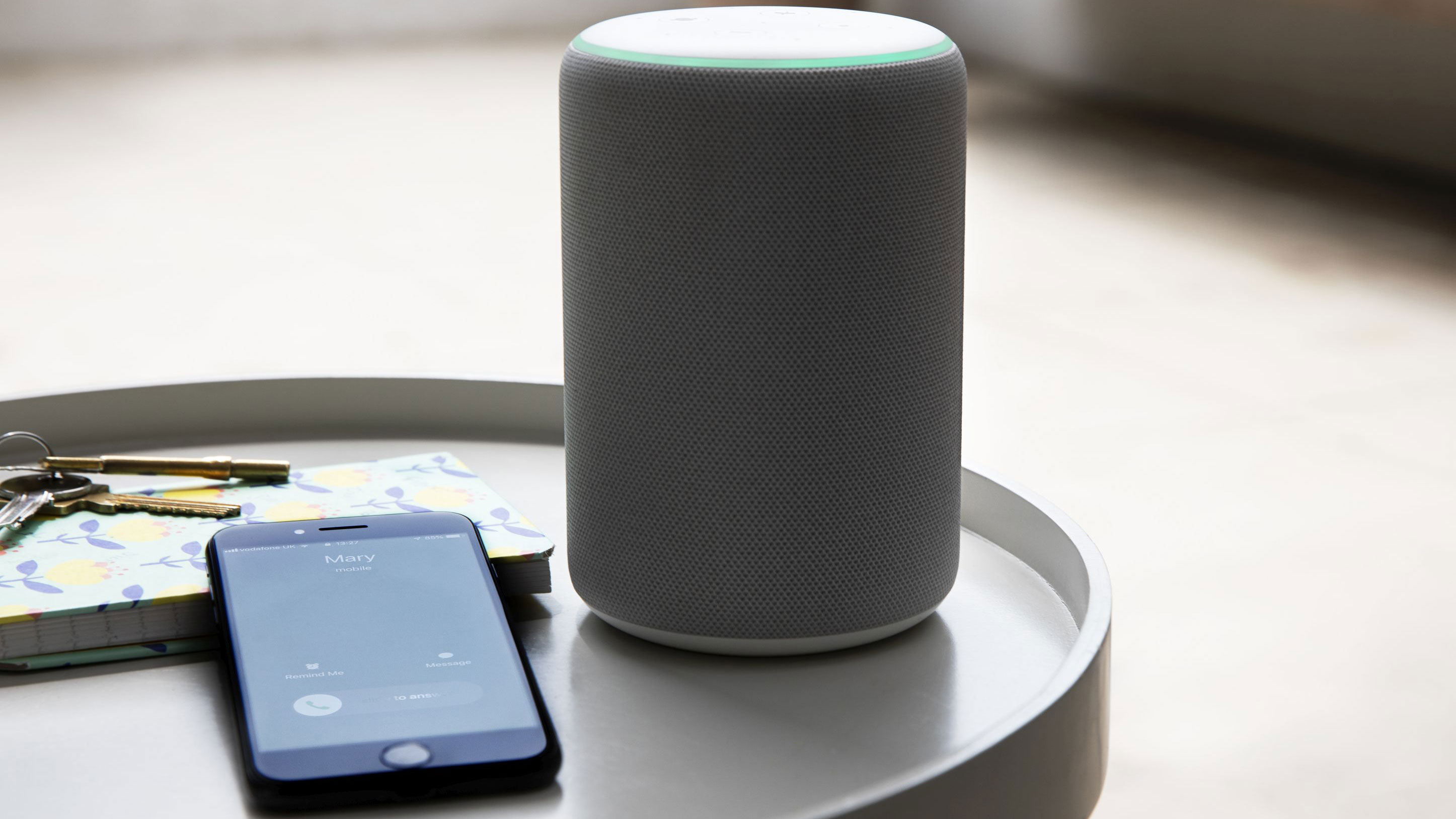Alexa's big AI upgrade could be powered by Claude – and that might give us truly smart speakers
Amazon looks to Claude to provide AI for Alexa

According to industry insiders, as reported by Reuters, the new version of Amazon’s Alexa, featuring built-in AI, will be powered by Anthropic’s Claude artificial intelligence, rather than a bespoke Amazon AI.
Anthropic’s Claude has long been heralded as a great alternative to OpenAI’s ChatGPT, but it doesn't have a voice mode, so teaming up with Amazon via Alexa opens the door to a lot of possibilities. We also wonder if we'll see a new Alexa with a screen that can really take advantage of AI, although Claude doesn't have any built-in image generating capabilities.
As we recently reported, rather than sticking to the free model we’ve been used to, the AI-powered version of Alexa will cost between $5 and $10 a month. The question of whether people will be willing to part with another $10 a month just to use AI on their Alexa device is another matter. Following on from Google charging $20 a month for Gemini Advanced, which you need to use the lauded voice mode features on its new Pixel 9 smartphone, some in the industry have already expressed concern at the rising cost of AI. Right now we’re so used to AI being free that even a small monthly charge can seem excessive.
Many had expected Amazon to develop its own AI, much like Facebook has with its Llama LLM. However, according to industry sources, the speed of responses from its own internal AI were just too slow, so Amazon turned to Anthropic’s Claude. Picking Claude as an off the shelf solution is a great idea and there’s nothing new in big names like Amazon reaching out for a little help with their AI offering. Microsoft was an early investor in OpenAI and uses ChatGPT to power Copilot in Windows. Apple is also using ChatGPT for situations that go beyond the scope of Siri’s onboard AI in the new iOS 18.
Claude recently won praise for adding an Artifacts feature to all users, even on the free tier, which opens a separate window to show you the results of the project it’s helping you create, as you continue to have a conversation about it in another window. The idea is that you can see in real time the effects of any tweaks and edits you make. Of course, this is more useful for people working on things like research or coding projects than the sorts of task Alexa is designed for, and Alexa devices have been predominantly without a display.

New features we know are coming to Alexa
The new AI-powered Alexa will be able to answer complex questions in much the same way that Google’s Gemini Live can, so you could ask it to help you plan for your first week at college, bring up a recipe for a casserole or devise a training plan to help you get fit. But there’s more. Leaked documents obtained by the Washington Post recently revealed five new features that are coming to Alexa in October, including smart briefing, a more personalized response, cooking help, shopping scout, and an AI assistant for kids.
Currently Alexa is used mainly to set timers and alarms, and adding AI could be the key to unleashing its true potential and giving us a truly smart speaker. Just image being able to have in-depth conversations with your kitchen speaker about life, the universe and everything.
You can try out Anthropic Claude for free right now on its website to see what it's capable of. Just like ChatGPT it’s a multimodal AI, so you can upload images and ask questions about them, write code in various programming languages or just shoot the breeze and ask it what hobbies you should take up.
Get daily insight, inspiration and deals in your inbox
Sign up for breaking news, reviews, opinion, top tech deals, and more.
You may also like:

Graham is the Senior Editor for AI at TechRadar. With over 25 years of experience in both online and print journalism, Graham has worked for various market-leading tech brands including Computeractive, PC Pro, iMore, MacFormat, Mac|Life, Maximum PC, and more. He specializes in reporting on everything to do with AI and has appeared on BBC TV shows like BBC One Breakfast and on Radio 4 commenting on the latest trends in tech. Graham has an honors degree in Computer Science and spends his spare time podcasting and blogging.